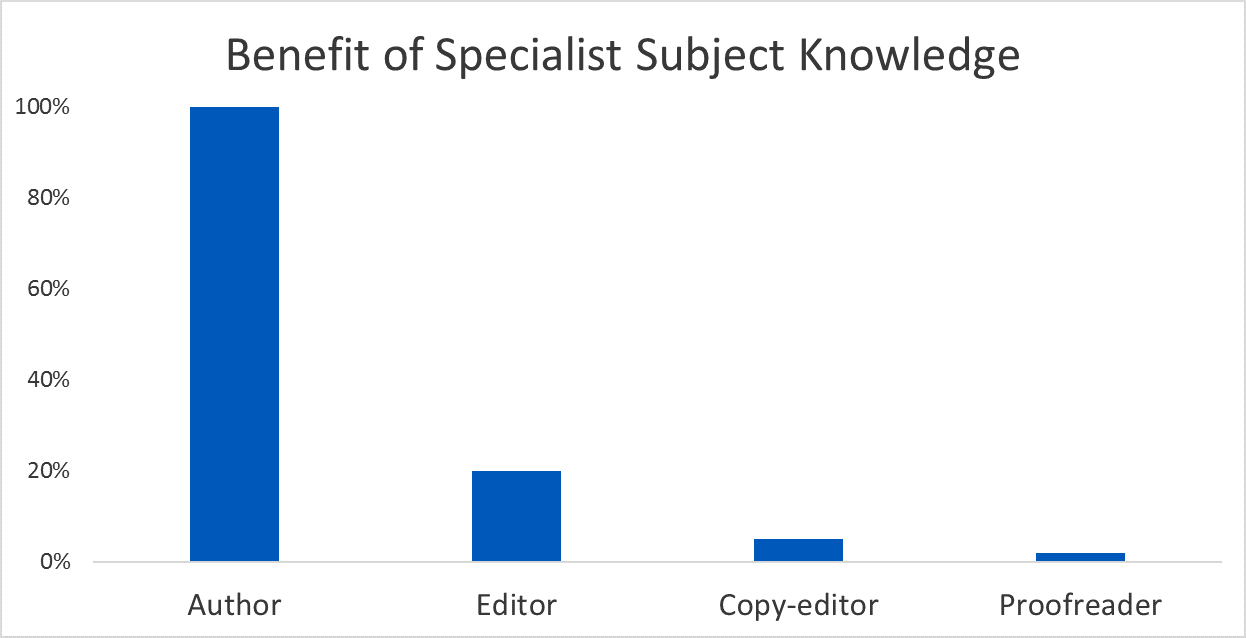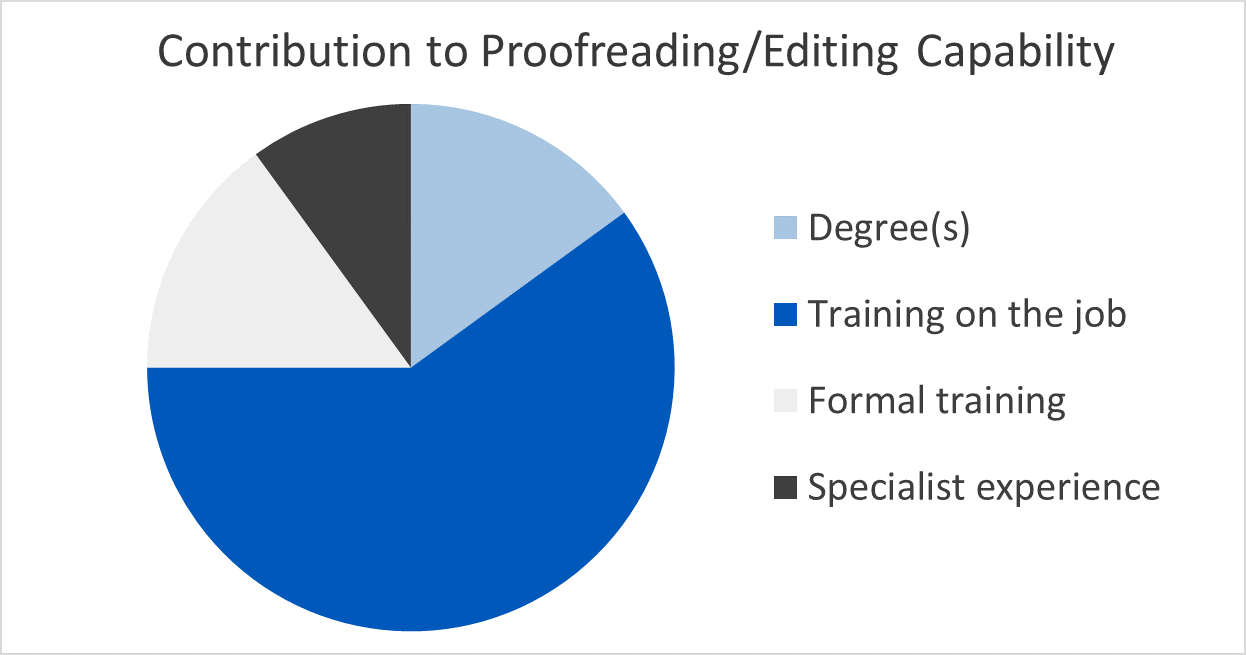I often get contacted by clients who have specifically looked for someone with technical knowledge or work experience in their field of technical specialism.
I can understand why a client would seek a proofreading service from someone in their specialist area, but there are many other factors that determine whether a particular proofreader or copy-editor is the best fit for a given project: experience of editing or proofreading similar documents is a big one.
While occasionally I do edit something from within the field in which I was a Senior Engineer, this is quite rare – it is a very specialist niche – and so naturally, I must also work on a variety of texts.
Is a specialist proofreading service worth seeking out?
I think there is some value to having a subject-matter expert work on your file.
There are obvious advantages to the editor or proofreader knowing the specific terms and phrases used commonly in that field. However, this sort of knowledge can also be gained from a style guide or from doing other editing and proofreading projects in that field.
As an example, I have proofread many academic papers in the field of electrical power system engineering, and I can honestly say that my specialist knowledge did not help at all: any technical proofreader could have done the same job.
What advantages are there?
Well, having said that it didn’t help at all, if we look more generally at the nitty gritty of what editing a technical document involves, then my experience of editing and proofreading equations, tables, graphs, variables, and other scientific shizzle actually does help quite considerably, and it can help a wide variety of clients.
From financial algorithms to human geography analysis, it can, and does, really help sometimes to be able to spot if the axis label says log (x) but the scale is not logarithmic, or to see that the units in an equation are not balanced. Having the technical know-how to spot and to raise this sort of issue can be a valuable service differentiator for a client.
Proofreading and editing are different
The thing is: this technical content checking is certainly not proofreading. The differences between the services are provided on my services and academic services pages, but generally speaking, as you move from the proofreading service, through proof-editing and copy-editing to a full-on editing service, it becomes more important that the author has an awareness of the nuances of what the text means.
In fact, here’s a graph to show this (the numbers are entirely made up).

The skills that matter for a technical proofreading service
When it comes to specialist subject knowledge, I have redefined what my specialism is to make it more relevant to the proofreading and editing jobs that I actually do.
I am no longer a specialist in proofreading/copy-editing power system engineering documents and I don’t even say that I offer specialist proofreading and editing services in engineering.
I am someone who specialises in improving technical, numerical and scientific documents.
The reason for this: that is what matters to the client.
The important skills are not understanding the content of the journal paper so much as understanding the end-client’s requirements and knowing when and how to edit so that the final product is as good as it can be. This might mean spotting errors in equations, spotting deviations from a journal’s style guide, spotting language errors or non-native English style and then making the necessary improvements. It’s about knowing what works, and this comes from experience and from context.
What to look for from a proofreader/editor for technical documents
With all of this in mind, I looked into what was important for me in building my capability. After some introspection and a trip down memory lane, I made a pie chart.

What this helped me to realise was that gaining experience in a particular subject area is the most important aspect of offering a specialist technical proofreading service.
It doesn’t need six years’ experience in a chosen profession in order to edit a document for a company in that field. It also doesn’t help too much to have a degree in that field – although exposure to the terminology and the types of graphs and data you might encounter will help a little – the most important thing is, without doubt, experience at editing and proofreading in that field, and that experience can be gained without tertiary qualifications and without specialist experience.
Advice for those seeking a specialist proofreading service
My advice for clients seeking a technical specialist to proofread or edit a document for them is to ask yourself the following questions:
- Why do I need someone with knowledge of the specific subject area?
- Could someone with more general experience (e.g. maths or engineering or physics) do as good a job?
I suspect that the answer to both of these questions will be that perhaps someone with non-subject-specific technical editing or technical proofreading ability could offer just as good a service.
If a proofreader or editor has some satisfied clients in a similar field, then this is a better sign than having a degree or work experience in your professional discipline.
If you are thinking of transitioning from a technical specialist to start offering a technical proofreading or editing service, then you may like to read a guest blog article I did for Louise Harnby | Proofreader on moving from being a technical specialist to proofreader and copy-editor with a specialism.
